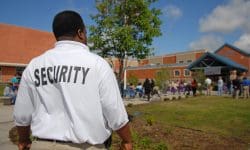3 Tips for Increasing Operational Effectiveness
Here are some ways to improve performance when responding to emergencies.
Emergency responders have “go bags” with important equipment, power bars and a change of clothes. They plan for the worst, participate in the incident command system at various levels and are prepared to work for several operational periods. They have also completed important training relating to the emergencies they may face.
But, what are other ways to increase operational effectiveness? What showstoppers can be avoided with some additional planning? The military teaches us three basic, but highly important, ways to increase operational effectiveness:
1. Family Plan: In order to concentrate on the job at hand, a person must know that his or her family is safe, secure and functional. A person constantly on the phone or worrying about a loved one will undoubtedly not be mission focused. Having a realistic and tested family plan is even more important for a single parent. Plans may be as simple as determining who’s going to pick up the kids from school or detailed financial information. Although emergency responders will not likely deploy for long periods of time like the military, two good sites to view include:
a. Family Care Plan
b. National Military Family Association
2. Physical Fitness: Whether an emergency responder is donning Level As in heat of the summer or working continuous 12+ hour shifts, being physical fit aids to sustainability and operational effectiveness. Most people would agree that physically fit people have more energy and endurance.
RELATED: Canadian School Resource Officer, Deputy Save Student’s Life
3. Teamwork: Knowing that you do not have to carry the burden alone offers a huge peace of mind. Knowing that the next person on shift is highly trained and experienced will not only ensure operational effectiveness, but will also help maintain schedule discipline for a possible lengthy response.
What else?
- Encourage physical fitness in the workplace. Many federal agencies encourage, and permit, staff to work out during the work day. Of course, physical fitness goes beyond eating right and exercising. Visit the CDC’s Workplace Health for more information.
- Leverage nearby responders to potentially supplement shifts. MOUs will likely need to be formulated and signed!
- Prepare mobile command vehicles, emergency operations centers and recovery centers that are comfortable, ergonomic and technically advanced.
- Don’t put off personal and professional responsibilities that would suddenly add to stress during a multi-operational response.
- Take time off now, before an emergency. We all know people who save vacation and sick leave to add to their retirement time, but in reality, emergency responders should make time for themselves.
Much has been written about the importance of planning, training and exercising to be ready for the next disaster, but we must also go beyond the norm to be able to be at our best when the time comes to respond. We owe it to those we serve, our family and ourselves.
Andy Altizer is the Director of Emergency Management for Kennesaw State University. Before coming to KSU in 2015, he was the Director of Emergency Preparedness at Georgia Institute of Technology for eight years. He’s also worked at Oglethorpe University, Georgia Emergency Management Agency and the U.S. Army.
Read Next: 10 Critical Protocols for Enhanced School Terrorism Preparedness
If you appreciated this article and want to receive more valuable industry content like this, click here to sign up for our FREE digital newsletters!
 Leading in Turbulent Times: Effective Campus Public Safety Leadership for the 21st Century
Leading in Turbulent Times: Effective Campus Public Safety Leadership for the 21st Century
This new webcast will discuss how campus public safety leaders can effectively incorporate Clery Act, Title IX, customer service, “helicopter” parents, emergency notification, town-gown relationships, brand management, Greek Life, student recruitment, faculty, and more into their roles and develop the necessary skills to successfully lead their departments. Register today to attend this free webcast!













